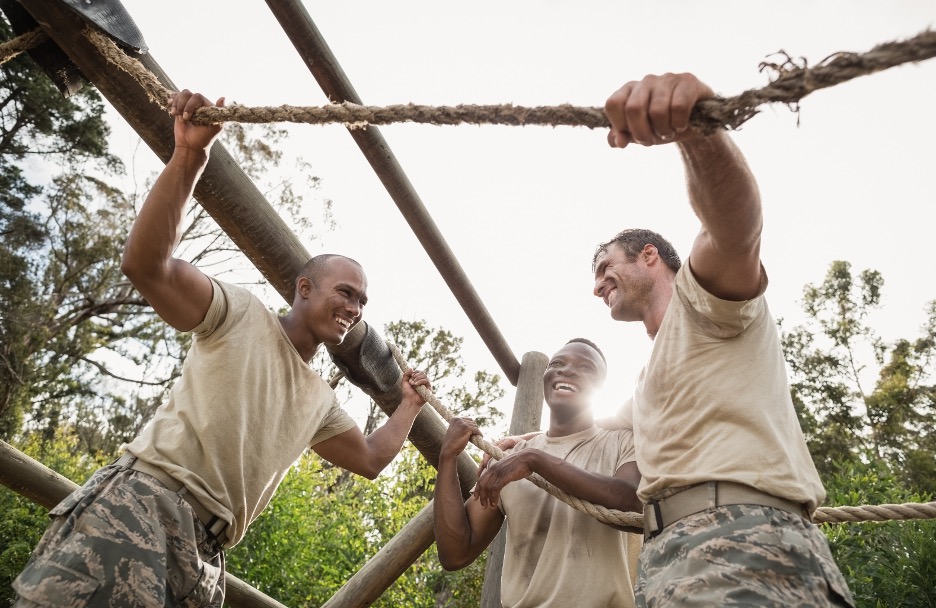Medical malpractice in military settings isn’t limited to healthcare facilities but extends to scenarios involving military training, where the health and safety of service members are paramount. This blog explores how medical malpractice affects military training outcomes, the challenges associated with addressing these issues, and the broader implications for service members and the military as a whole.
The Intersection of Medical Malpractice and Military Training
- The Role of Medical Care in Training
Military training is intense and physically demanding, often requiring comprehensive medical oversight to ensure the safety and well-being of participants. Medical care during training includes:- Immediate Care for Injuries: On-site medical teams are responsible for treating injuries sustained during training exercises, ranging from minor injuries to severe trauma.
- Preventive Care and Monitoring: Regular health assessments and preventive care are essential to maintaining the fitness and readiness of service members.
- When medical care fails to meet the required standards, the repercussions can be severe, impacting both the health of individuals and the overall effectiveness of training programs.
- Examples of Medical Malpractice in Training Settings
Medical malpractice during military training can manifest in various ways:- Delayed Treatment: Failure to provide timely medical attention for injuries or symptoms can exacerbate conditions, leading to prolonged recovery times or permanent damage.
- Incorrect Diagnosis: Misdiagnosing injuries or illnesses can result in inappropriate treatment, hindering recovery and affecting training outcomes.
- Negligent Supervision: Inadequate supervision of medical personnel during training exercises can lead to lapses in care, increasing the risk of harm.
Implications for Military Training Outcomes
- Impact on Service Members
Medical malpractice can have significant consequences for service members, including:- Physical Consequences: Injuries or illnesses resulting from substandard medical care can affect physical fitness, delaying or preventing completion of training.
- Psychological Impact: The stress and trauma of experiencing medical negligence can lead to psychological issues, including anxiety and diminished confidence in training and operational environments.
- Career Progression: Persistent health issues resulting from medical malpractice can impact career progression, limiting opportunities for advancement and affecting long-term career goals.
- Impact on Training Programs
The overall effectiveness of military training programs can be compromised by medical malpractice:- Increased Attrition Rates: Poor medical care can lead to higher attrition rates, as service members may be forced to withdraw from training due to health issues.
- Reduced Readiness: When injuries or illnesses are not managed properly, it can reduce the readiness and effectiveness of military units, impacting operational capabilities.
- Training Delays: Delays in addressing medical issues can prolong training cycles, affecting overall program efficiency and resource allocation.
Challenges in Addressing Medical Malpractice in Training
- Identifying and Reporting Issues
Detecting and reporting instances of medical malpractice in training settings can be challenging:- Lack of Transparency: In some cases, there may be a lack of transparency or reluctance to report issues, especially if they involve senior personnel or institutional practices.
- Complex Bureaucracy: The complex military bureaucracy can make it difficult for service members to navigate the process of reporting and addressing medical malpractice.
- Legal and Administrative Barriers
Addressing medical malpractice in military training involves navigating legal and administrative barriers:- Sovereign Immunity: The legal doctrine of sovereign immunity can limit the ability to hold the government accountable for medical negligence, complicating efforts to seek redress.
- Institutional Resistance: There may be resistance within military institutions to acknowledge or address issues of medical malpractice, making it challenging to implement reforms.
Case Studies and Real-World Examples
- Case Study: Delayed Treatment in a Training Exercise
A notable case involved a service member who sustained a serious injury during a training exercise. Due to delayed medical treatment, the injury led to long-term complications, affecting the individual’s ability to complete training and impacting their career. The case highlighted the critical importance of timely and effective medical care in training settings. - Success Story: Reform Initiatives
In response to identified issues of medical malpractice in training settings, some military branches have implemented reform initiatives to improve care. These initiatives include enhanced training for medical personnel, improved reporting systems, and increased oversight to ensure adherence to care standards.
Addressing the Issue: Steps Toward Improvement
- Enhancing Medical Training and Oversight
To improve medical care in training settings, the military can:- Increase Training for Medical Personnel: Providing comprehensive training for medical staff on handling injuries and emergencies during training exercises can enhance the quality of care.
- Implement Robust Oversight: Establishing rigorous oversight mechanisms ensures that medical practices during training meet high standards and that issues are addressed promptly.
- Improving Reporting and Accountability
To address issues of medical malpractice:- Develop Clear Reporting Mechanisms: Creating clear and accessible reporting mechanisms allows service members to report concerns about medical care without fear of retaliation.
- Promote Transparency: Encouraging transparency and accountability within military medical practices helps identify and address issues of malpractice effectively.
- Fostering a Culture of Safety
A culture of safety can be fostered by:- Encouraging Open Communication: Promoting open communication about medical care and potential issues helps create a culture where safety is prioritized and concerns are addressed.
- Supporting Service Members: Providing support and resources for service members affected by medical malpractice ensures they receive the care and assistance needed to recover and continue their training.
Conclusion
Medical malpractice in military training settings can have far-reaching implications, affecting both individual service members and the effectiveness of training programs. Addressing these issues requires a multifaceted approach, including enhanced medical training, improved reporting mechanisms, and a commitment to fostering a culture of safety and accountability. By focusing on these areas, the military can work towards ensuring that all service members receive the quality of care they deserve during training, ultimately supporting their readiness and career progression.
If you or a loved one has experienced medical malpractice during military training, ForTheMilitary.com is here to help. Our dedicated legal team specializes in military medical malpractice cases and can guide you through the process of seeking justice and fair compensation. Contact us today to learn more about your options and take the next step towards resolution and recovery.

 Call Now- Open 24/7
Call Now- Open 24/7





